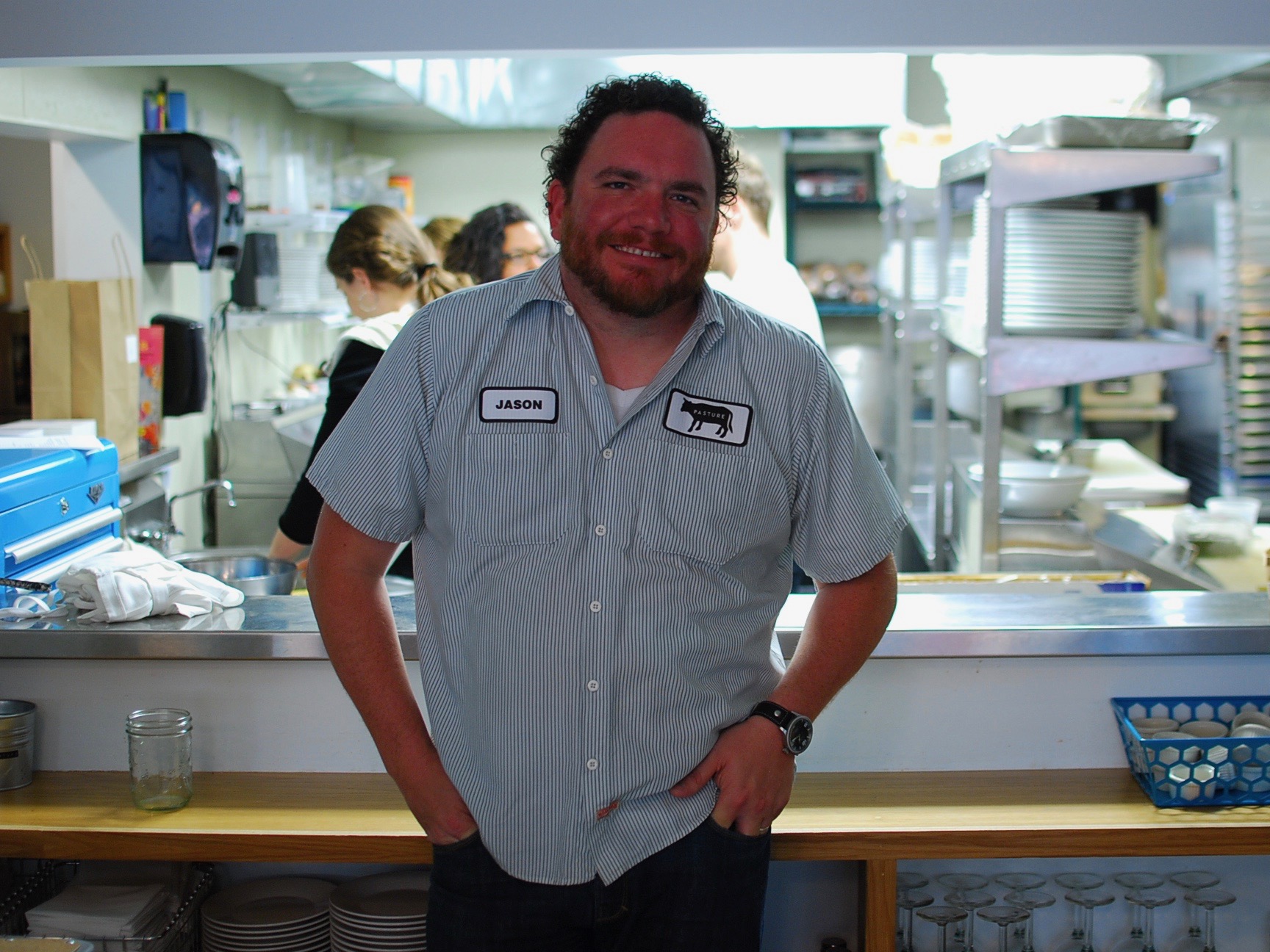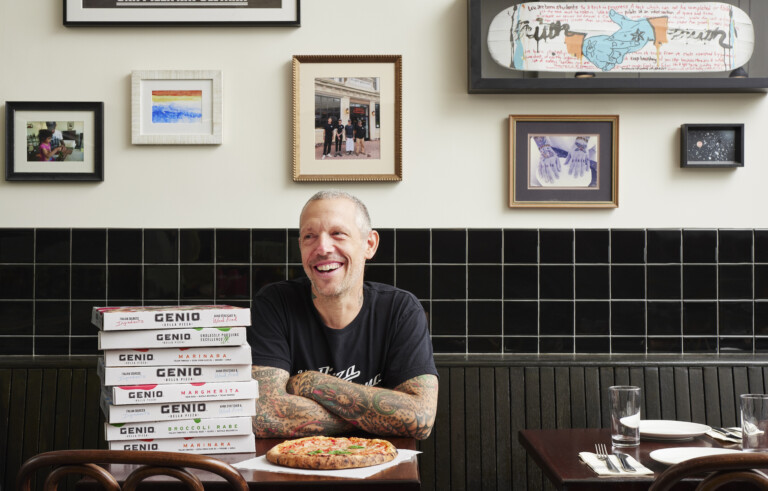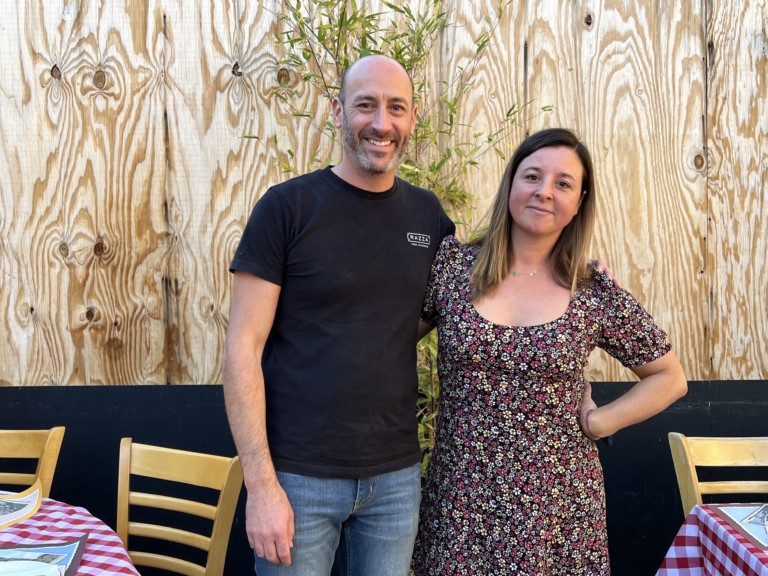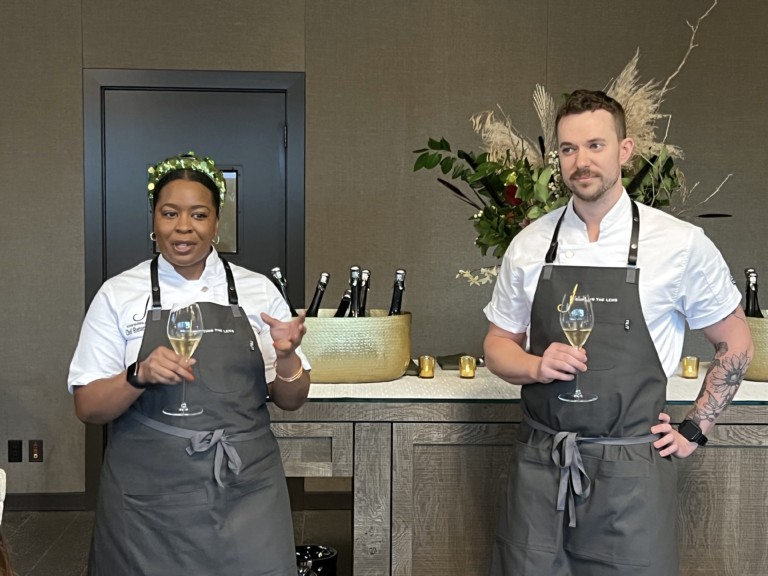Jason Alley hails from the hamlet of Dublin in southwestern Virginia and has made a name for himself in Richmond, first with Comfort and now with Pasture, a restaurant he owns with Michele Jones. The business partners recently launched a second Pasture in the Jeffersonian college town of Charlottesville with chef-partner Pete Evans. I spent a couple food-focused days with Alley and Jones in May, and he shared several culinary insights.
Josh Lurie: Did you always know that you were going to be a chef?
Jason Alley: I grew up in a country—I didn’t even know that was really a job. You know, we didn’t really have any restaurants, at all. So, when I got to college, I washed dishes in a country club, I worked in fast food in high school. I’ve always worked in some sort of food service. Washed dishes the one year I was in college at the dining hall, but I didn’t really ever think about it. Then I started working in this country club. The chef was great. He had moved down to Harrisonburg, Virginia, from Manhattan, so he was doing really cool stuff. I fell in love with it.
JL: Did you ever consider other careers?
JA: No, not really. I mean, I played in rock bands…but I got the bug early, and I never thought about doing anything else.
JL: You’re a drummer?
JA: Yep, yeah.
JL: Do you feel like being a musician helps you at all as a chef?
JA: I don’t know that it helps. I’m trying to think of the best way to put this. You know, creative people need creative outlets, and so I think that’s one of the reasons this industry attracts so many musicians. One is flexibility but its also another creative outlet. That’s another way to sort of perform for other people. It’s just a different medium.
JL: So what was the country club that you were at?
JA: It was called Spotswood Country Club in Harrisonburg, Virginia. I went to James Madison for a year and promptly failed out, and that’s when I started cooking actively.
JL: What do you remember about your very first night in that kitchen?
JA: I was super intimidated. They had hired me to banquet wait, and to wash dishes. I’d gotten a really horrible haircut and had to shave my head, and the chef was super pissed because he was going to start me on the floor. So he started me in the dish room instead, and then as soon as my hair grew out he started me on the floor and I hated it. I was not very good at it. So he moved me back in, but that first night was really, really tough because I had no idea what was going on. Then having a pissed off chef at you on the first day is less than ideal.
JL: What does a dish have to be to serve at either one of your restaurants, Pasture or Comfort?
JA: Really delicious. That’s the main criteria. We want it to be something that has some foundation in Southern food —and that can be as little as it’s a local ingredient. We’re not super traditional at Pasture. Comfort is a little bit more restrictive, because we set it up like a meat-and-three. But really it’s about delicious. You know, we use a lot of French technique, we use a lot of Latin influences. It just has to be great.
JL: What’s the top selling dish in each restaurant and why do you think that’s the case?
JA: You know, it changes on any given night, but typically I would say that meatloaf is our biggest seller, at Comfort. I think that that’s because—well one it’s a really great meatloaf – we make mushroom gravy with demi glace that we do in house from local beef bones, so there’s a lot of attention paid to this sort of humble dish. I think it’s because when people come, we get all sorts of different age groups and demographics that come in, and that’s a really cross-cultural thing. We’ve really been known for that. Here, it really changes. We sell a lot of Pimento cheese here, because we really try to focus on the snack and small plate aspect of the menu. So a lot of those and a lot of pickles. We sell a lot of pickles.
JL: What’s the most recent dish that you developed and what was your inspiration for that?
JA: Probably the most recent one [at Pasture], that’s on the menu, we do a chorizo meatball. We butcher a half a pig a week, so we end up with a decent amount of trim, and we tried to figure out are we going to make a sausage, or what are we going to do. So we do this chorizo meatball in pozole broth, over grits. So you can see the Latin influence there. But the idea is sort of—I hate the word deconstructed—but sort of just a different presentation on pozole. So, that is typically a soup that has pork shoulder and hominy and all this stuff. So we make a super, super traditional pozole broth, but the hominy component, we use hominy grits, that are locally milled like 15 minutes up the road. We fold a little jalapeño into those, and then the chorizo – we do a lightly season chorizo, it’s not super heavy – we do those in meatballs instead of just being chunks of braised pork shoulder. So, at the end of the day, it’s a meatball dish, but the inspiration was definitely from that awesome Mexican soup.
JL: What do you look for when you’re hiring somebody to work in one of your kitchens?









Leave a Comment